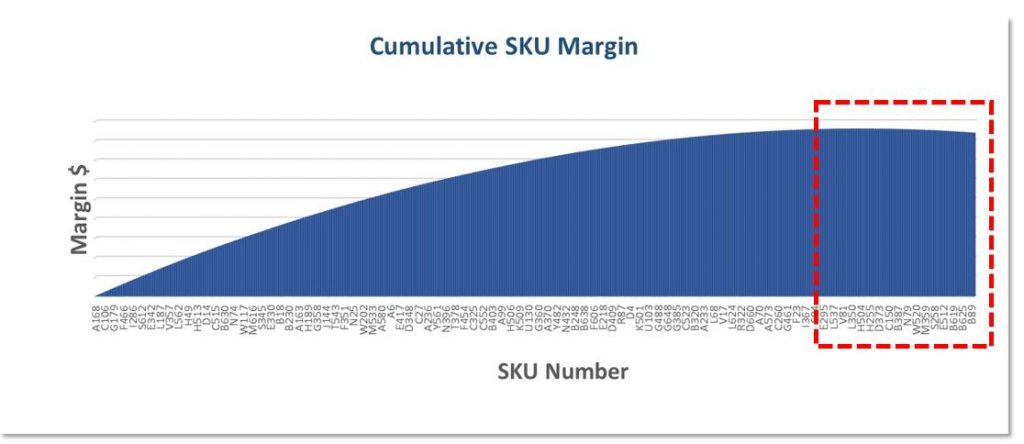Profitability and Cash Flow Improvement: SKU Optimization
What analysis are you using to make the right decisions about your products or service offerings?
Many companies do not realize the real costs of product proliferations because they rely on assumptions or “team knowledge” to make decisions. In our experience, there is almost always margin leakage (generating less than expected or even negative margin) to be found if you are not tracking product or service profitability.
How does SKU proliferation happen?
- A single product grows into multiple SKUs as different options are introduced
- Customers drive variations and the Company is keen to do whatever a Customer wants
- Insufficient attention is given to product management, including managing end of life
What are the implications of unchecked SKU proliferation?
- For manufacturing companies, many SKUs can cause frequent switch overs, increasing manufacturing cost
- It can be difficult for Companies to accurately forecast many SKUs, resulting in increased inventory and transportation costs
- Unless a proper costing and financial tracking system exists, it is easy for Companies to not fully understand product margins and lead to faulty pricing strategies
Take the example of a manufacturing company that over several years had added new SKUs but did not have an effective method to determine which ones were causing margin leakage within the business. While sales per SKU was tracked, there was no process in place to determine product level profitability. This made it impossible to effectively make product decisions, which was having repercussions across the Company’s operations. With so many SKUs, some of which were small volume units, on-time customer fulfillment was beginning to suffer, and manufacturing efficiencies were being lost.
A repeatable process was established to properly determine SKU level contribution margin so the impact of each product could be understood, as illustrated in the following Figure.

As highlighted in the red box in Figure, a number of SKUs were identified that were responsible for diminishing margins, including nearly $1.2 million in negative margin products.
From this analysis, the Company was armed with the information to better understand which products made sense to continue. A negative margin product may be intentional as part of a “loss-leader” strategy but without this type of information, companies cannot make informed decisions.
Beyond improving margins other tangible benefits can be realized from SKU optimization, including:
- Lower inventory, warehousing, and logistics costs
- Increased forecast accuracy
- More focused sales efforts
- Improved manufacturing efficiency from reduced changeovers
- Ability to implement more advanced strategic pricing approaches to maximize margins
Waypost Advisors can provide experienced professionals to help you put the tools and capabilities in place to achieve higher profitability.
Contact us today for a free consultation. We know what works because we have done it before.
